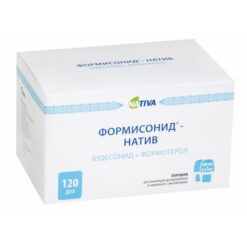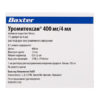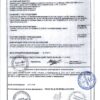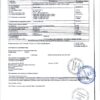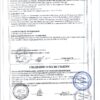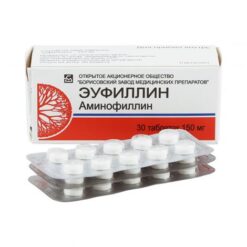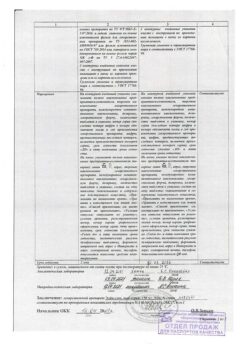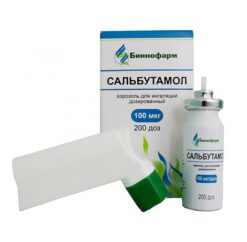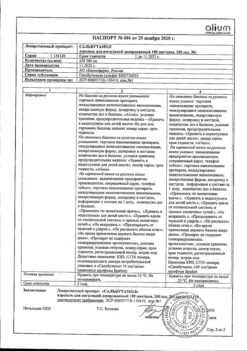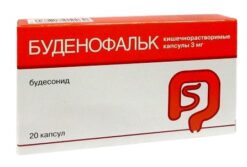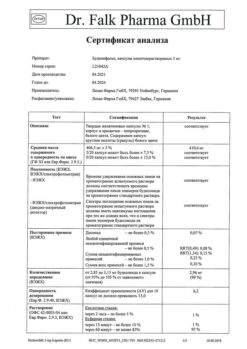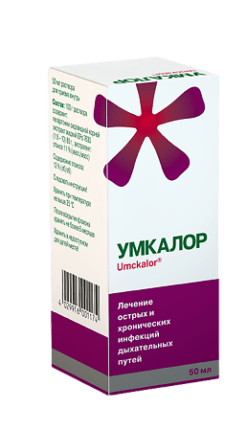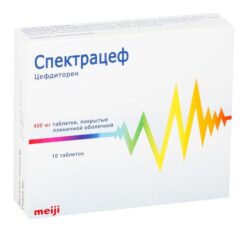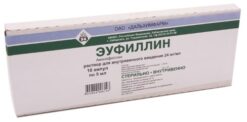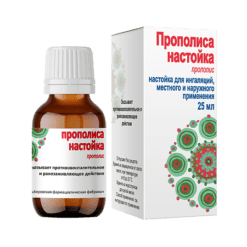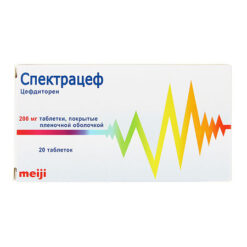Subtotal: €46.82
Uromitexan, 100 mg/ml 4 ml 15 pcs
€1.00
Out of stock
(E-mail when Stock is available)
Pharmacodynamics
Mesna is an antidote of acrolein, a metabolite of anticancer drugs from the group of oxazaphosphorins (ifosfamide, cyclophosphamide), which irritates the bladder mucosa. The protective properties of mesna are due to the interaction with the double bond of the acrolein molecule, which leads to the formation of a stable non-toxic thioether. By reducing the urotoxic effects of oxazaphosphorins, mesna does not weaken their antitumor effects.
Pharmacokinetics
. When administered intravenously, Uromitexan is rapidly oxidized to disulfide and is reduced in the kidneys to a free thiol compound, which binds irreversibly to alkylating derivatives to form non-toxic stable thioethers. Maximum excretion is 2-3 hours after IV injection.
The elimination half-life after an IV dose of 60 mg/kg in the fast phase is 0.17 h, in the slow phase – 1.08 h. Completely excreted by the kidneys within 8 hours, with excretion in the form of SH-mesna during the first 4 hours, 32% of the dose as thiol and 33% as disulfide. When administered orally, absorption occurs in the small intestine.
The average peak concentration of free thiol compounds in the urine is reached after 2-4 hours. Approximately 25 + 10% of the dose taken is detected as free mesna in the urine in the first 4 hours.
In a dose of 2-4 g/sq.m., the half-life of ifosfamide is about 4-8 hours. To maintain adequate levels of mesna in the bladder during elimination of urotoxic metabolites of ifosfamide, an appropriate frequency of administration is necessary.
Indications
Local detoxification of the urotoxic effects of cytostatics – oxazaphosphorine derivatives, incl. in the following cases:
when oxazaphosphorines are administered in high doses (more than 10 mg/kg);
in patients at risk
previous radiation therapy to the pelvic area,
development of cystitis during previous therapy with oxazaphosphorines, a history of urinary system diseases.
Pharmacological effect
Pharmacodynamics
Mesna is an antidote to acrolein, a metabolite of antitumor drugs from the oxazaphosphorine group (ifosfamide, cyclophosphamide), which irritates the mucous membrane of the bladder. The protective properties of mesna are due to its interaction with the double bond of the acrolein molecule, which leads to the formation of a stable, non-toxic thioester. By reducing the urotoxic effects of oxazaphosphorines, mesna does not weaken their antitumor effect.
Pharmacokinetics
When administered intravenously, Uromitexan is quickly oxidized to disulfide, and in the kidneys it is reduced to a free thiol compound, which irreversibly binds to alkylating derivatives, forming non-toxic stable thioesters. Maximum excretion occurs 2-3 hours after intravenous injection.
The half-life after intravenous administration at a dose of 60 mg/kg in the fast phase is 0.17 hours, in the slow phase – 1.08 hours. It is completely excreted by the kidneys within 8 hours, and in the first 4 hours, excretion occurs in the form of SH-mesna, 32% of the dose in the form of thiol and 33% of disulfide. When taken orally, absorption occurs in the small intestine.
The average peak concentration of free thiol compounds in urine is reached after 2-4 hours. About 25 + 10% of the dose taken is found in the urine as free mesna in the first 4 hours.
At a dose of 2-4 g/m2, the half-life of ifosfamide is about 4-8 hours. To maintain adequate levels of mesna in the bladder during the elimination of urotoxic metabolites of ifosfamide, an appropriate dosage frequency is necessary.
Special instructions
Mesna has a protective effect only on the urinary system and does not eliminate other side effects of cytostatics, therefore, when treating with drugs from the oxazaphosphorine group, it is necessary to use a full range of supportive and symptomatic therapy.
During the treatment period, false-positive reactions to the presence of ketone bodies in the urine are observed. There may be a reddish-purple coloration of the urine, which is unstable and disappears immediately when glacial acetic acid is added to the urine.
Active ingredient
Mesna
Composition
1 ampoule with concentrate for preparing a solution for infusion contains:
active ingredient:
mesna 400 mg in 4 ml.
excipients:
sodium edetate,
sodium hydroxide,
water for injections
Contraindications
Hypersensitivity to mesna or any component of Uromitexan. Pregnancy and lactation period.
Side Effects
Nausea, vomiting, diarrhea (with a single dose of more than 60 mg/kg body weight).
Rarely – phlebitis at the injection site, hematuria, allergic reactions on the skin and mucous membranes.
Interaction
Mesna is compatible with cyclophosphamide and ifosfamide, therefore it can be administered with them in the same solution, while the antitumor activity of the latter does not change.
Pharmaceutically, the drug is incompatible with cisplatin (binding and inactivation of the latter), and therefore mesna should not be mixed in the same solution with cisplatin.
Mesna does not affect the therapeutic effectiveness of adriamycin, carmustine, cisplatin, methotrexate, vincristine, or the activity of cardiac glycosides.
Storage conditions
Store at a temperature not exceeding +25°C.
Shelf life
5 years.
Manufacturer
Baxter Oncology GmbH, Germany
| Shelf life | 5 years. |
|---|---|
| Conditions of storage | Store at a temperature not exceeding +25°C. |
| Manufacturer | Baxter Oncology GmbH, Germany |
| Medication form | solution |
| Brand | Baxter Oncology GmbH |
Related products
Buy Uromitexan, 100 mg/ml 4 ml 15 pcs with delivery to USA, UK, Europe and over 120 other countries.

